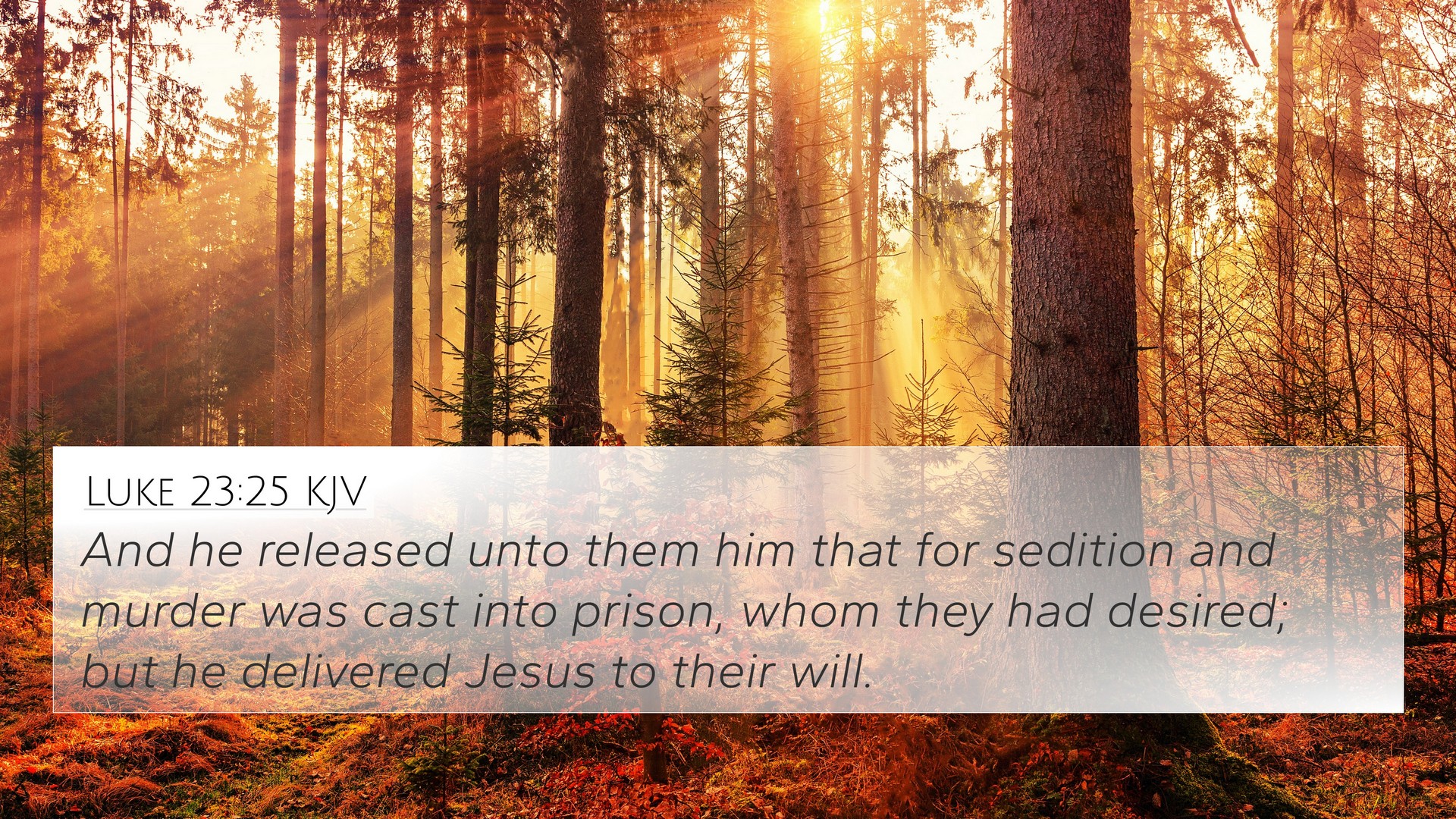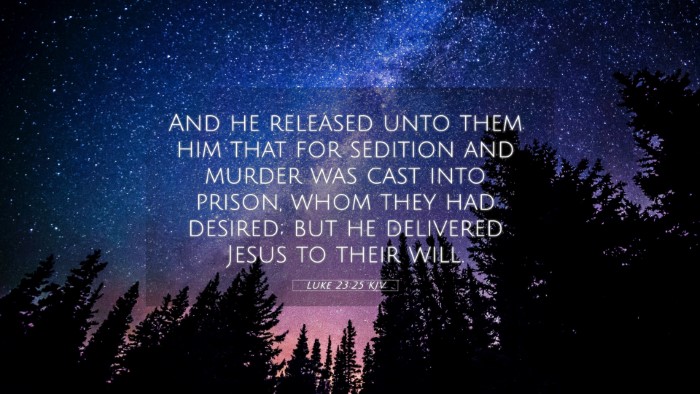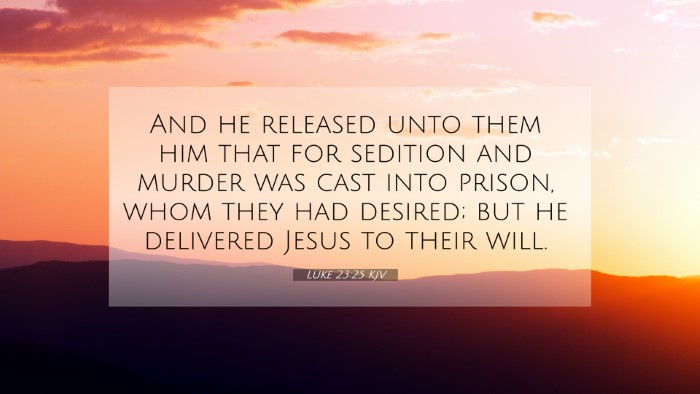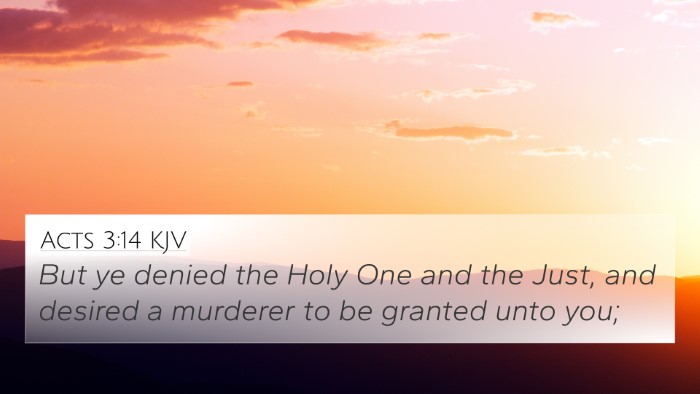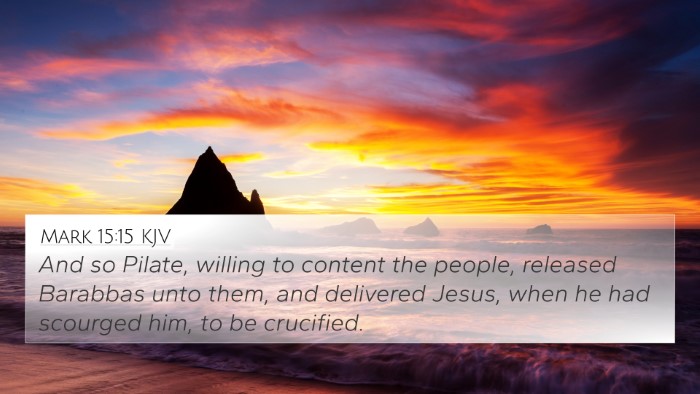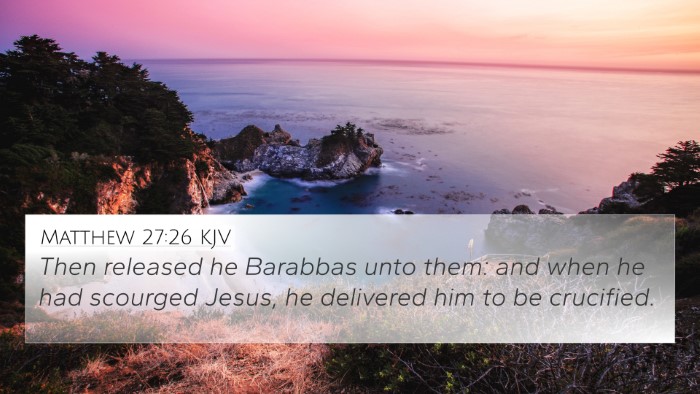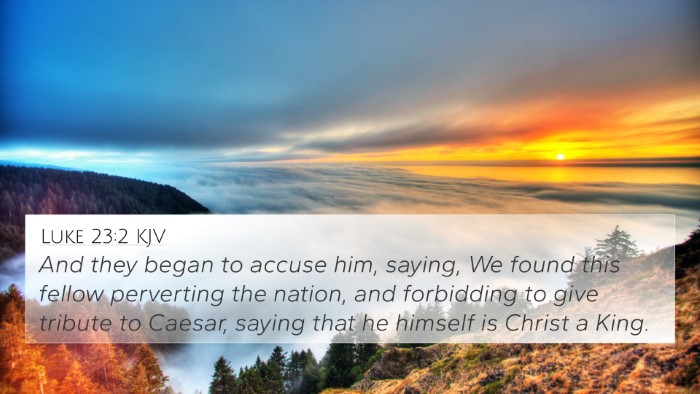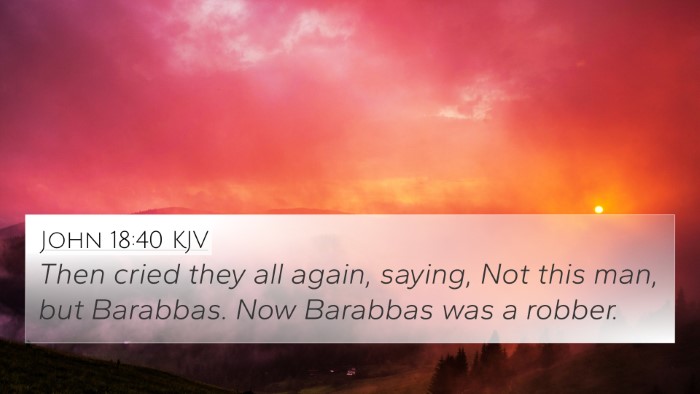Understanding Luke 23:25
Luke 23:25 states: “And he released unto them him that for sedition and murder was cast into prison, whom they had desired; but he delivered Jesus to their will.” This verse encapsulates a profound moment in the Passion narrative, highlighting themes of justice, choice, and the fulfillment of divine prophecy.
Summary of the Verse Meaning
This pivotal event occurs during the trial of Jesus Christ before Pontius Pilate. The crowd, stirred by the religious leaders, chooses to release Barabbas—a notorious prisoner—over Jesus, who was innocent. This choice signifies the rejection of the Messiah and the lengths to which the human heart can go in rejecting truth.
Insights from Public Domain Commentaries
Matthew Henry's Commentary
Henry emphasizes the irony of the situation. He notes that Barabbas, whose name means "son of the father," was chosen over Jesus, the true Son of the Father. This choice reflects the fallen human nature to gravitate towards sin and rebellion rather than righteousness. The decision to release a murderer over the innocent redeemer illustrates the depths of human depravity.
Albert Barnes' Notes on the Bible
Barnes elaborates on the political and social dynamics at play. He points out that Pilate, to appease the crowd, succumbed to their demands despite knowing Jesus' innocence. This act showcases the conflict between political expediency and moral rectitude. Barnes notes that this event fulfills Scripture, as the decision made by the crowd was prophesied, further emphasizing God’s sovereignty in orchestrating redemption through seemingly dark circumstances.
Adam Clarke's Commentary
Clarke provides a historical context to the release of Barabbas, explaining that it was a Passover custom to release a prisoner. He highlights the significance of this choice and how it reflects the spiritual condition of the people. He compares Barabbas and Jesus, revealing the spiritual implications of what it means to choose sin over salvation. Clarke urges readers to reflect on their own choices and their alignment with Christ.
Thematic Connections in Scripture
Luke 23:25 serves as a crossroad connecting multiple biblical themes and verses. It invites further study and cross-referencing with several key scriptures:
- Isaiah 53:3: Prophesies that the Messiah would be "despised and rejected by men."
- John 18:40: Narrates the crowd's choice of Barabbas over Jesus.
- Matthew 27:21: Details Pilate's inquiry to the crowd about whom to release.
- Galatians 5:17: Discusses the conflict between the desires of the flesh and the Spirit, paralleling the choice of Barabbas versus Jesus.
- Romans 5:8: Expresses the love of God in Christ, despite of our sinful nature—underscoring the irony of choosing sin (Barabbas) over righteousness (Jesus).
- Acts 3:14: Refers to the crowd denying the Holy One and the Just.
- 1 Peter 2:24: Highlights Christ bearing our sins, contrasting with the crowd's choice.
Cross-referencing and Further Study
For those seeking to delve deeper into the connections between Luke 23:25 and other biblical passages, several tools and resources can aid in cross-referencing:
- Bible Concordance: Helps locate words and themes throughout Scripture.
- Bible Cross-Reference Guide: Provides lists of interconnected verses to enhance understanding.
- Bible Chain References: Facilitates exploration of related scriptures.
Practical Applications
The decision surrounding Jesus' fate reflects choices that continue to resonate today. Believers are called to examine their own decisions in light of Scripture and embrace the implications of choosing Christ over sinful inclinations. The crowd’s choice serves as a warning against the pressures of societal influence and the importance of standing firm in truth.
Conclusion
Luke 23:25 is a profound scripture that not only highlights the rejection of Jesus but also establishes a critical point of dialogue for understanding sin, redemption, and the nature of human choice. Its connections to both Old and New Testament verses enrich the study of the Gospel narrative and reinforce the need for believers to remain attentive to the choices they make in faith.
SEO Keywords
In the context of biblical interpretation and theological study, the following keywords are pertinent:
- Bible verse cross-references
- Connections between Bible verses
- Linking Bible scriptures
- Bible verses that relate to each other
- Comparative Bible verse analysis
- Cross-referencing Biblical texts
- Thematic Bible verse connections
- Inter-Biblical dialogue
- How to find cross-references in the Bible
- Bible verses related to rejection
